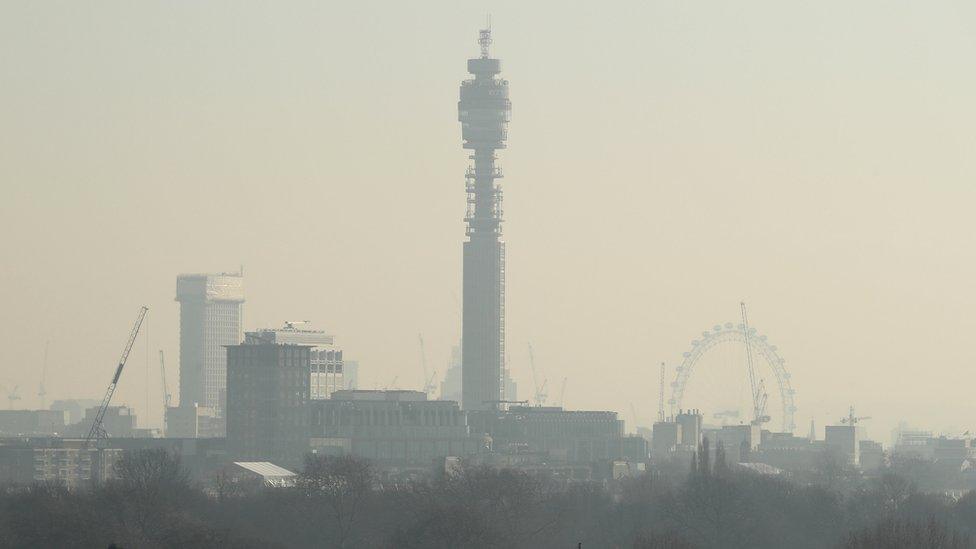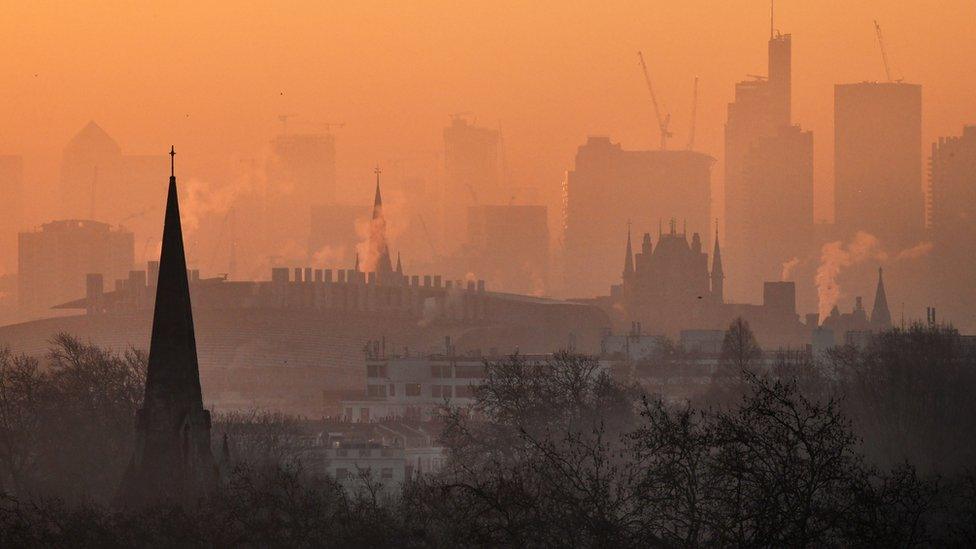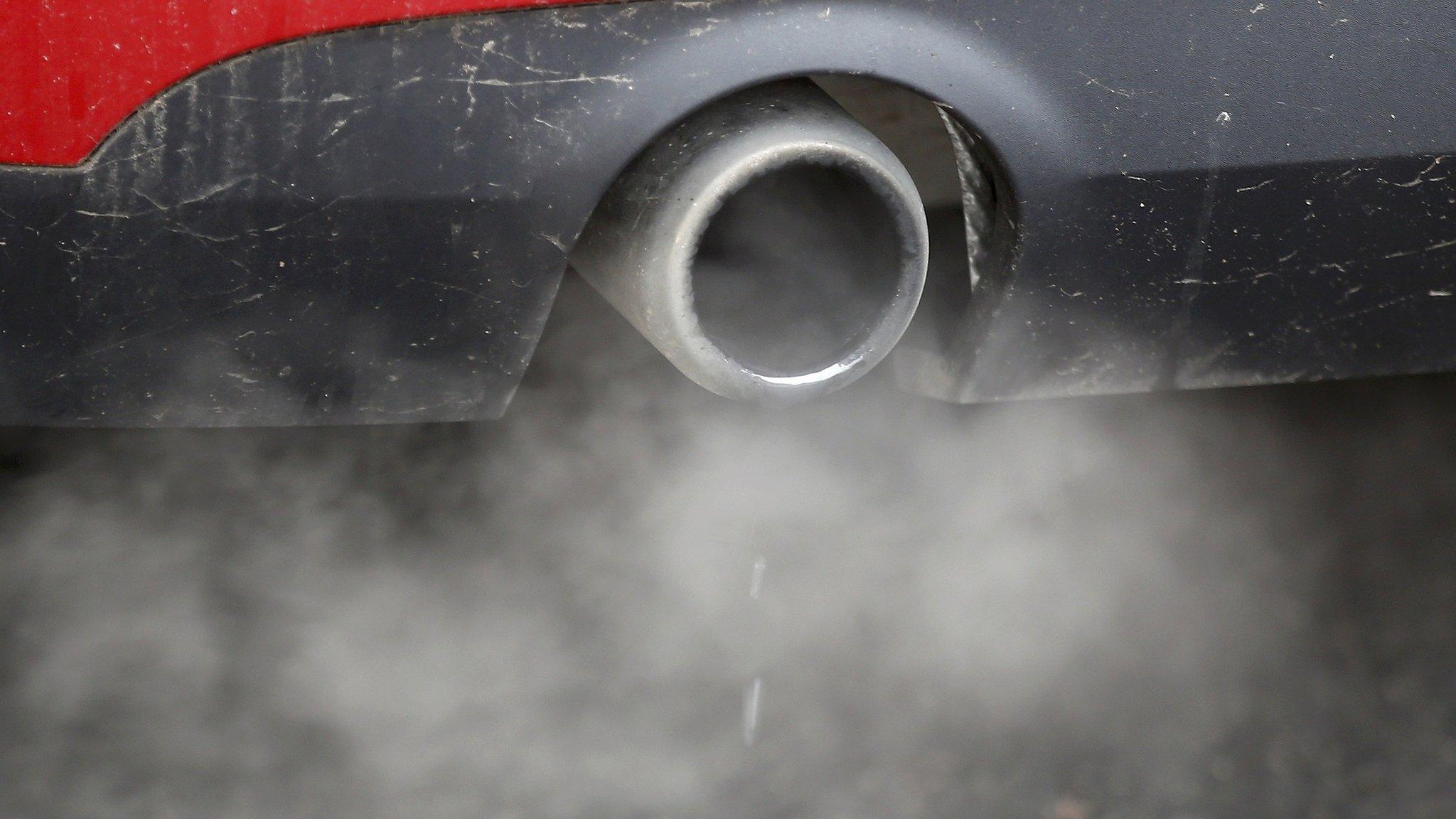London faces pollution public health crisis, Sadiq Khan says
- Published

Figures show car usage is back to pre-pandemic levels
London faces a crisis of "filthy air and gridlocked roads" unless car use is reduced, the city's mayor has warned.
Sadiq Khan cited a report by traffic information supplier Inrix, external, which claimed London was the world's most congested city last year.
Mr Khan said unless more was done to deliver a sustainable future, the city would be replacing one public health crisis - Covid-19 - with another.
Figures show car usage is close to being back to pre-pandemic levels.
Public transport is a different story though, with bus usage at 70% and Tube travel at 55% of levels seen before the first lockdown.
'Demand too great'
The report by Inrix also found that congestion cost London's economy £5.1bn, an average of £1,211 per driver, last year.
This was based on an estimate of the earnings drivers could be making, or the leisure time they could be enjoying, if they were not stuck in traffic.

The Centre for London is calling for drivers in the capital to be charged per mile
"Whilst we have made huge strides in increasing walking and cycling in London throughout the pandemic, car use has remained consistently high," said Mr Khan.
"If we do not double down on our efforts to deliver a greener, more sustainable future, we will replace one public health crisis with another - caused by filthy air and gridlocked roads."
He added: "The cost to both Londoners and the capital [should not] be underestimated, with days wasted stuck in traffic, billions lost to the economy and increased road danger and health impacts.
"Most traffic is caused simply by there being too great a demand for limited street space, meaning the only long-term solution can be to significantly reduce car use in favour of greener means of travel."

Analysis: BBC London transport correspondent Tom Edwards
Sadiq Khan has made tackling pollution a priority and the expanded Ultra Low Emission Zone is his flagship policy but the problem is congestion and the number of vehicles is going the wrong way.
Now he's asking Londoners to think again about driving.
Policy-wise he visited an early "mini-Holland" scheme in Leyton - which only allows walking and cycling - as he wants to see more of this. But these schemes are contentious and he was harangued by a local who didn't like it, although many businesses there do.
The real sticking point is any changes, like cycle lanes or low-traffic neighbourhoods, are subject to government funding and while some think they go too far, others think he is not going far enough, and what the capital needs is road pricing or pay-per-mile.

Nick Bowes, chief executive of the thinktank Centre for London, said the mayor should scrap the "outdated" congestion charge as it only affects those who drive through the centre.
Instead, he should introduce a "simpler, smarter and fairer system of road-user charging which replaces both the congestion charge and the Ultra Low Emission Zone".
"Such a scheme would tackle congestion, improve air quality and promote travel by public transport, walking and cycling, by charging drivers by the mile. It could also play a key role in filling the hole in Transport for London's budget."
Green Party London Assembly member Sian Berry agrees, saying congestion was a warning sign that transport policies in London were not working.
"The mayor cannot deliver a green recovery from the pandemic unless he gives Londoners transport options that are easier, safer and cheaper than car travel.
"Instead, our fares are rising and Londoners are being forced into cars, while bus, train and Tube services are being cut, and not enough is being done to make space for safe walking and cycling."
- Published16 August 2021

- Published6 July 2021

- Published19 October 2021
